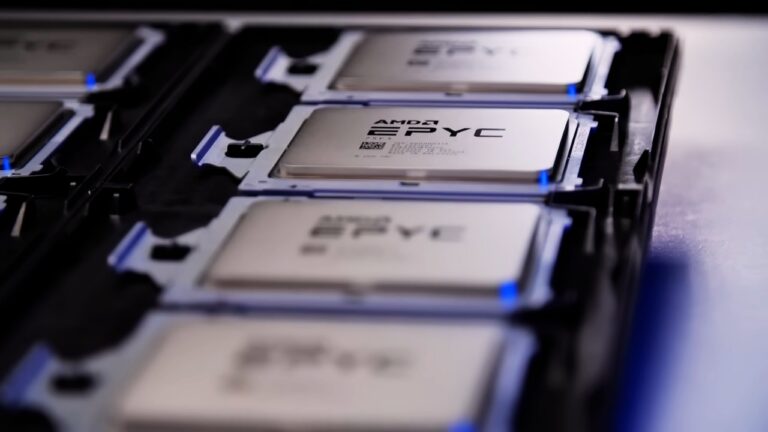Intel has launched its next-generation Xeon server processors, aiming to reclaim market share in the data center sector. The company also introduced its Gaudi 3 artificial intelligence accelerator chips, which will be priced significantly lower than those of its competitors.
Intel’s sixth-generation Xeon chips are pivotal as the company has been losing data center market share to Advanced Micro Devices (AMD). Over the past year, Intel’s share of the x86 data center market has fallen by 5.6 percentage points to 76.4%, while AMD has risen to 23.6%, according to Mercury Research. Manufacturing setbacks at Intel have allowed AMD to gain ground, as AMD uses Taiwan Semiconductor Manufacturing Co (TSMC) for chip fabrication.
The new Xeon server processors are available in two main versions: a more powerful model and an “efficiency” model, which Intel suggests as a replacement for older chips. The efficiency model promises the same computing power as Intel’s second-generation chips but requires 67% fewer server racks. This model is designed for media, websites, and database calculations. “Simply put, performance up, power down,” Intel CEO Pat Gelsinger said at the Computex trade fair in Taipei.
The performance model is intended for tasks requiring significant computational power, such as running complex AI models. The efficiency model is available immediately, while the performance model will be released in the third quarter. Intel plans additional variations next year, having delayed the sixth-generation chip by a year to use a different manufacturing process.
Intel also announced that a Gaudi 3 accelerator kit, which includes eight AI chips, costs about $125,000, while the earlier Gaudi 2 model is priced at $65,000. Gelsinger emphasized that these prices are competitive, especially compared to rivals. For instance, an HGX server system with eight Nvidia H100 AI chips can exceed $300,000, according to Thinkmate.
Intel had previously disclosed the Gaudi 3 AI chip details in April, positioning it as a more affordable alternative to Nvidia’s H100 chips.
Additionally, Intel unveiled its next-generation laptop chip, Lunar Lake, which uses 40% less power and features a more powerful AI processor. This chip will ship in the third quarter. Gelsinger expressed excitement about the new PCs using Lunar Lake, stating, “It will power the largest number of next-gen AI PCs in the industry.” He also acknowledged TSMC’s critical role in developing many of the core technologies for Lunar Lake.
Looking ahead, Intel plans to introduce Arrow Lake next year, followed by Panther Lake in 2025.


















